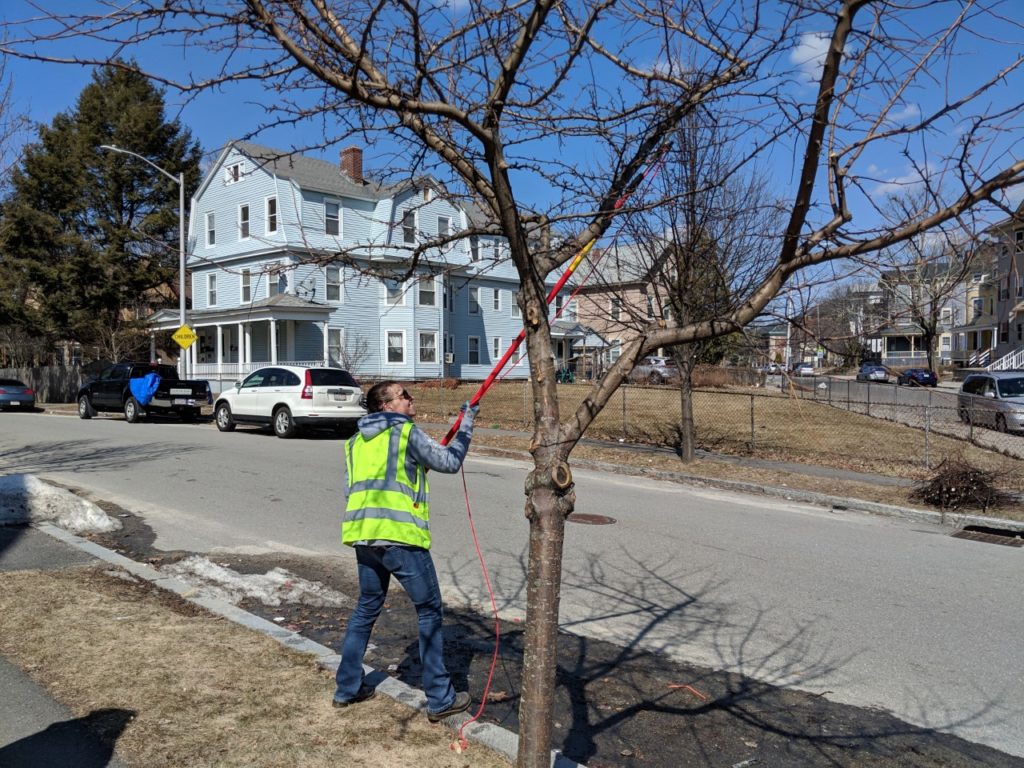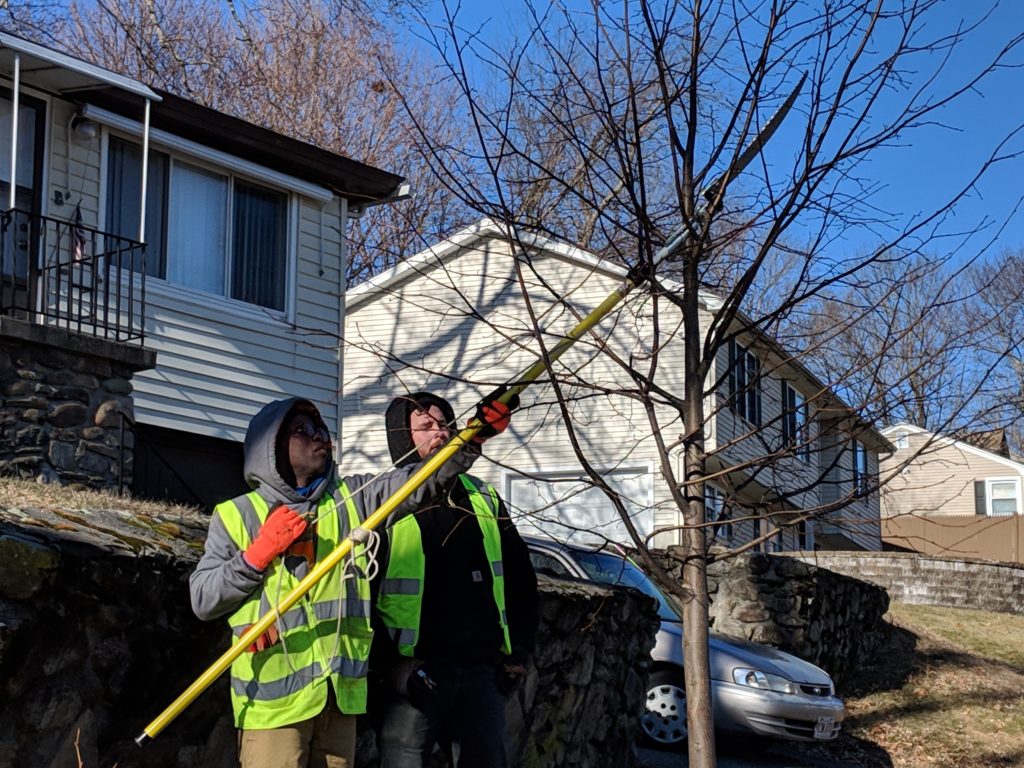
By Ruth Seward
I am never enthused to wake up early on a cold wintery Saturday morning. The thought of participating in a long outdoor morning event, makes me even less inclined to jump out of bed and get dressed. But I do. I head out the door, armed with coffee and tea for a small army. I start my cold car and head to our prearranged destination. Once there, I meet my co-worker, Derek, and the other Worcester Tree Initiative Tree Stewards. We offer each other a chilly but hearty hello. I offer coffee and tea, which some people take and others decline until later. Then we slowly and methodically begin our work, pruning small city trees that line Worcester’s streets.
Sometimes we trudge through snow. Sometimes we battle windy conditions. Sometimes we are too cold to be talkative. However, as we begin to warm up and work our way through pruning a few young street trees, our conversations inevitably become a little louder and a bit more animated. We are tending to the young tree canopy. We are helping to improve their health and vigor. We are conquering the bitter conditions. We are connecting as a community. And, frankly, it feels good.
Trees are critical to our planet, especially to our urban environments. They produce the most oxygen of all land plants, which allows other forms of life (including humans) to exist. Their shade reduces urban heat island effect, which is a result from man-made, built environments. They offer homes to birds and other wildlife, better balancing the ecosystems we interrupt with development. They mitigate flooding, especially important in a world laden with impervious pavement. They calm us down; they cheer us up, and give us food. They are important. They are life giving.
I love trees and advocate for their existence in our overly man made cities. I am equally energized by my fellow tree pruners. They are a special breed. They care passionately about these large enigmatic plants. They work carefully so these trees will grow as magnificently as they possibly can in harsh urban settings. These people work now for results they may never see. What we produce today isn’t about us individually; it is about us as a collective unit. It is our legacy project for the future. For countless people we will never know.
After two and a half hours of careful cutting and woody debris clean up, we gather around the tailgate of my car. I offer coffee and tea and everyone takes some. The drinks warm us. We chat about the events of the morning: the tall double leader reduced to allow for a strong single leader in a 7 year old Tulip Poplar tree; the young Oak trees that seem misshapen and craggily but will grow into strong sturdy trees; the interested neighbors who came out this morning to interact with us. Then we share tidbits about ourselves: how our grandchildren are growing, the trips we will take soon, events we went to last night.
Finally, it is time to go. Derek brings woody debris to the transfer station. I pack up the refreshments and start up my car. It is still cold but the sun is out now. Predictably, it has turned into a lovely day.

Ruth Seward is the Director of Outreach for New England Botanic Garden at Tower Hill.
